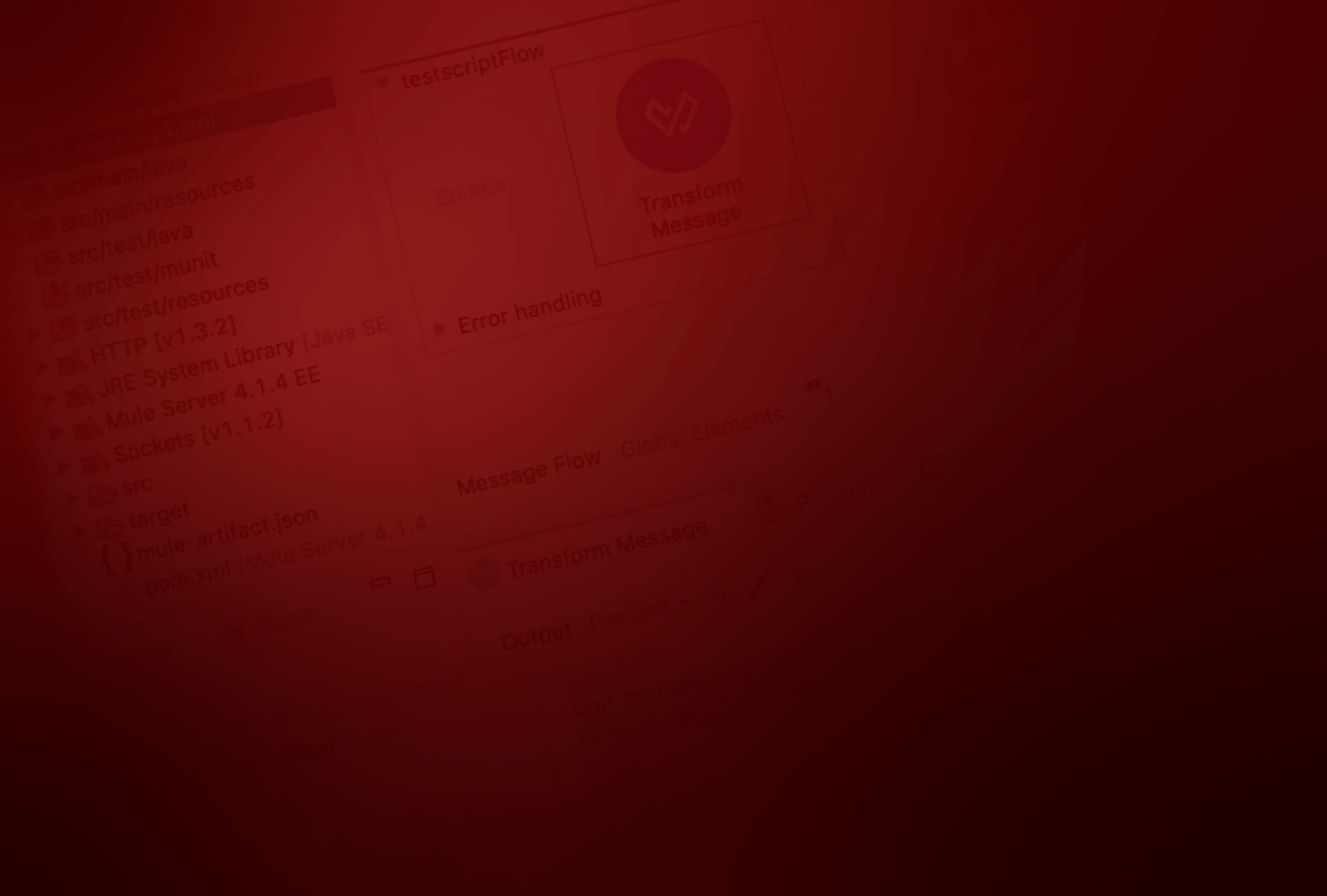- Services
- Solutions
- Technologies
- Resources
- About
-
- +44 (0)203 743 8014
×

)
)
This course is for all DevOps engineers, IT operations, developers, and architects who want to get hands-on experience managing and monitoring Mule applications deployed to CloudHub 2.0.
Note: This course does not focus on the differences between CloudHub and CloudHub 2.0, or on defining a migration path.
2 days in-person
2 days online
Intermediate
At the end of this course, students should be able to:
You'll learn from some of the best trainers in the industry. The training will be tailored to your needs and budget. We can arrange training for your employees (groups for up to 12 people) whenever it suits you. We'll even adapt the standard courses according to your requirement.
Not the course you were looking for? We have a range of courses to suit everyone.
Interested in instructor-led MuleSoft training from the industry's experts? Book and enquiry and give your team the training they need to innovate within your business.
We are passionate and share the joy of igniting ideas to fuel business visions. We are confident and are not afraid to boldly go where we’ve never been. We are also very friendly and approachable people who love to solve problems. Give our curious intelligent learners a challenge and we will make it work.
[fa icon="phone"]+44 (0)203 743 8014
[fa icon="phone"]+44 (0)203 875 5669 (Support)
[fa icon="envelope"]info@infomentum.co.uk
[fa icon="map-marker"]4th Floor
68 King William Street
London, EC4N 7HR, UK